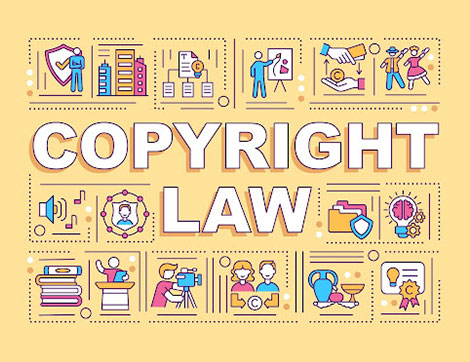
In what ways does copyright legislation apply to training organisations?
Copyright law is a set of laws that protect the intellectual property rights of authors. It prohibits the copying, distribution, performance, and display of other people’s work without their permission. Copyright law applies to training organisations in a number of ways as they are not exempt from copyright law. The training materials they produce can be protected by copyright law as long as they are original and not copied from any other source. For example, copyright may protect the material that is used in training courses, such as course materials, presentations and other teaching aids. Copyright protects the way in which the training is delivered, such as online courses or distance learning materials. Perhaps the most obvious way is that any materials created by the organisation, such as training manuals or PowerPoint presentations, will be protected by copyright. This means that no one can copy or use these materials without the permission of the copyright holder, which is usually the training organisation itself. The days when the trainers would move from one RTO to another and bring a copy of their previous employers training and assessment material with them are well and truly over.
Organisations must ensure that they have the necessary copyright permissions in place before using any copyrighted material. This includes ensuring that they have permission from the copyright owner to use the material, and that they are complying with any conditions attached to that permission. For example, if a trainer wants to use someone else’s copyrighted material in a presentation, they will need to get permission from the copyright owner before doing so. Otherwise, they could be infringing on someone’s copyright and could be liable for damages. The training organisation, therefore, must be careful when they create training materials such as books, videos and slideshows to ensure that they are not infringing on other people’s copyrights.
Finally, it’s important to note that copyright law also applies to digital materials. So, if a training organisation wants to use an online video or audio clip in a presentation, they will need to make sure that they have the appropriate permissions from the copyright owner before doing so.
Organisations should also be aware of the exceptions and limitations to copyright law, which may allow the use of copyrighted material without the need for permission from the copyright owner. For example, the fair dealing exceptions allow the use of copyrighted material for certain purposes, such as criticism, review, news reporting and research.
In summary, copyright law affects training organisations in a number of ways. It is important for organisations to be aware of these laws and to ensure that they are complying with them. Otherwise, they could face legal action for infringement.
For more information on copyright and how it applies to training organisations, please refer to the following websites:
Comments are closed.